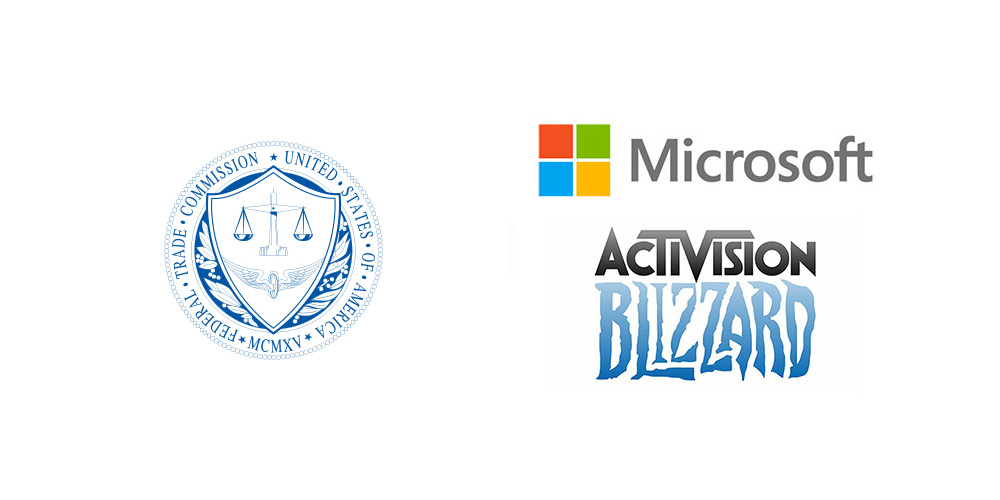Activision Blizzard: FTC Challenges Microsoft Merger Approval

Table of Contents
The FTC's Case Against the Merger
The FTC's antitrust lawsuit against the Microsoft-Activision Blizzard merger centers on allegations of anti-competitive behavior and the potential for market dominance. The core of their argument rests on several key points:
-
Stifling Competition: The FTC argues that allowing the merger would grant Microsoft undue control over the video game market, significantly reducing competition and harming consumers. This market power would allow Microsoft to dictate terms to other game developers and publishers, potentially stifling innovation and choice.
-
Call of Duty Exclusivity Concerns: A major focal point of the FTC's case is the potential for Microsoft to make popular Activision Blizzard titles, particularly Call of Duty, exclusive to its Xbox ecosystem. This would significantly harm competitors like PlayStation and Nintendo, potentially shifting market share dramatically in Microsoft's favor. The loss of such a major franchise could severely impact PlayStation's ability to compete.
-
Cloud Gaming Domination: The FTC also highlights Microsoft's already significant presence in the cloud gaming market. They argue that incorporating Activision Blizzard's vast game catalog would further solidify Microsoft's dominance in this burgeoning sector, leaving little room for competitors to innovate or thrive. This could lead to higher prices and less choice for consumers.
-
Impact on Pricing and Innovation: The lawsuit details specific concerns about how the merger could negatively impact pricing, innovation, and overall consumer choice within the gaming industry. The FTC argues that reduced competition will lead to less incentive for innovation and potentially higher prices for gamers.
-
Precedence of FTC Action: The FTC's lawsuit builds on its past actions against large tech mergers, indicating a strengthened commitment to preventing monopolies and protecting competition in the digital marketplace. This case sets a precedent for future regulatory scrutiny of mergers and acquisitions in the tech industry.
Microsoft's Defense of the Merger
Microsoft counters the FTC's claims by arguing that the merger will ultimately benefit gamers and foster innovation within the industry. Their defense strategy hinges on several key points:
-
Expanding Game Access: Microsoft maintains that the merger will actually expand access to games for a wider audience by leveraging Activision Blizzard's creative talent and their own technological capabilities. This increased access would include bringing popular titles to new platforms and services.
-
Continued Call of Duty Availability: Addressing the FTC's concerns about Call of Duty exclusivity, Microsoft has publicly pledged to continue making the game available on PlayStation and other platforms. They have entered into agreements to maintain Call of Duty's presence on other consoles for years after the merger.
-
A Dynamic and Competitive Market: Microsoft emphasizes the dynamic and competitive nature of the gaming market, highlighting the existence of multiple strong players beyond themselves and Activision Blizzard. They contend that their market share is not so significant as to create a monopoly.
-
Synergies and Innovation: Microsoft argues that combining Activision Blizzard's creative strengths with their own technological advancements will lead to significant innovation in game development and distribution, ultimately benefiting consumers. They point to potential technological advancements and improvements in game experiences.
-
Proposed Remedies: Microsoft has also proposed various remedies to address the FTC's concerns, aiming to demonstrate their commitment to maintaining a fair and competitive gaming market. These remedies might involve licensing agreements or other concessions.
The Role of Call of Duty in the Debate
The immense popularity of Call of Duty makes its cross-platform availability a central battleground in this legal fight.
-
PlayStation's Market Share: The potential loss of Call of Duty from the PlayStation ecosystem could severely impact Sony's market share and competitiveness. This makes the game’s availability a critical factor in the FTC's assessment.
-
Cross-Platform Commitments: The validity and enforceability of Microsoft's commitments regarding Call of Duty's cross-platform availability are key elements being scrutinized by the FTC.
-
Legal and Economic Consequences of Exclusivity: Making Call of Duty exclusive to Xbox could trigger significant legal repercussions and potential economic losses for Microsoft if the FTC's concerns are upheld. The financial ramifications of such a move are a major factor in the court's deliberations.
Potential Outcomes and Implications
The outcome of the FTC lawsuit will have far-reaching implications for the gaming industry and beyond.
-
Legal Timeline and Outcomes: The legal battle could stretch over an extended period, potentially years, before a final ruling is reached. Possible outcomes range from complete blockage of the merger to conditional approval with stipulations.
-
Impact on Future Mergers and Acquisitions: The decision will set a precedent for future mergers and acquisitions within the gaming and tech sectors, influencing how regulators approach similar deals. Other potential large-scale mergers might be influenced by the outcome.
-
Competitive Landscape: The merger's success or failure will significantly alter the competitive landscape of the video game market, impacting both established players and smaller developers. The balance of power in the industry could be shifted substantially.
-
Impact on Consumers and Game Developers: The final outcome will directly affect consumers through pricing, game availability, and the overall innovation within the industry. Game developers will also be impacted, either positively or negatively, depending on the final result.
Conclusion
The FTC's challenge to the Microsoft-Activision Blizzard merger highlights the immense complexities of regulating large-scale acquisitions in the dynamic gaming industry. The outcome will profoundly influence the competitive landscape and shape the future of gaming. The core debate centers on the potential for anti-competitive practices, especially regarding the exclusivity of titles like Call of Duty. This case underscores the growing regulatory scrutiny of tech mergers and their potential impact on competition and consumer choice.
Call to Action: Stay informed about the ongoing legal battle surrounding the Activision Blizzard and Microsoft merger. Follow the developments to understand the long-term impact on the gaming industry and the implications for consumers. Keep up-to-date on the latest news regarding the Activision Blizzard acquisition to see how this case shapes the future of gaming.

Featured Posts
-
 La Wildfires A Reflection Of Our Times Through Disaster Gambling
Apr 26, 2025
La Wildfires A Reflection Of Our Times Through Disaster Gambling
Apr 26, 2025 -
 Worlds Tallest Abandoned Skyscraper Construction Resumes After 10 Year Hiatus
Apr 26, 2025
Worlds Tallest Abandoned Skyscraper Construction Resumes After 10 Year Hiatus
Apr 26, 2025 -
 Open Ais Chat Gpt Under Ftc Scrutiny A Deep Dive Into The Investigation
Apr 26, 2025
Open Ais Chat Gpt Under Ftc Scrutiny A Deep Dive Into The Investigation
Apr 26, 2025 -
 Trump Administrations Attempts To Influence European Ai Legislation
Apr 26, 2025
Trump Administrations Attempts To Influence European Ai Legislation
Apr 26, 2025 -
 Todays Stock Market Dow Futures Chinas Economic Policies And Tariff Effects
Apr 26, 2025
Todays Stock Market Dow Futures Chinas Economic Policies And Tariff Effects
Apr 26, 2025
